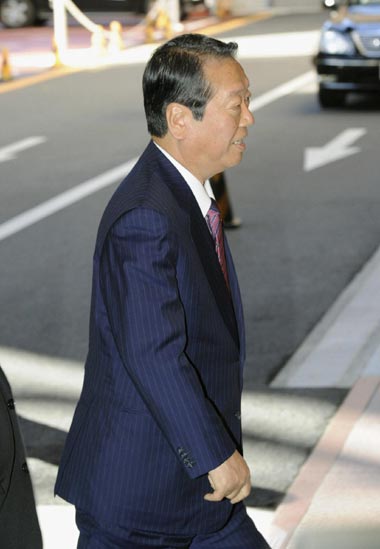Asia-Pacific
Japan ruling party to meet on powerbroker Ozawa
(Agencies)
Updated: 2010-12-27 09:55
 |
Large Medium Small |
TOKYO - Japanese ruling party executives will meet on Monday to discuss scandal-plagued powerbroker Ichiro Ozawa's refusal to appear at a parliamentary ethics panel, as a split in the party threatens to widen.
The strife in the Democratic Party of Japan (DPJ) is also undermining support rates for Prime Minister Naoto Kan's six-month-old government, fanning speculation he may become Japan's latest short-lived leader.
A survey by the Nikkei business daily published on Monday showed only about one in four voters backed Kan's administration while the percentage of dissatisfied voters rose five points to 65 percent. Kan is already Japan's fifth premier since 2006.
Japanese media say Kan is considering reshuffling his cabinet to try to boost his ratings while reaching out to a tiny opposition party to help pass laws in a divided parliament -- although members of the conservative Sunrise Party are wary.
 |
|
Ichiro Ozawa, ruling Democratic Party of Japan's powerbroker, arrives at a hotel to meet Prime Minister Naoto Kan (not in the picture) in Tokyo December 25, 2010. [Photo/Agencies] |
Ozawa, 68, a veteran political strategist who once headed the DPJ, last week refused a demand by Kan to appear at the ethics panel to answer questions about the funding scandal.
Ozawa has denied any wrongdoing but faces indictment over suspected misreporting by his political funds body, after a judicial panel ruled that he should be charged.
Media said that some DPJ executives want to start procedures to call Ozawa before the panel, although an appearance would still not be mandatory, or even to force him to give sworn testimony in parliament as the opposition is demanding.
But whether any agreement can be reached remains in doubt, given opposition to such a move by Ozawa's backers.
Analysts say Kan could also try to expel Ozawa, probably after he is charged over the scandal sometime early next year.
An all-out confrontation risks splitting the Democrats, who swept to power in August 2009 promising change, although how many lawmakers would join Ozawa if he leaves the party is unclear.
Kan appears to have thought that forcing Ozawa to answer questions in parliament would help boost government support and improve Kan's chances of keeping his job. Ozawa was credited by some with engineering the Democrats rise to power for the first time last year, but is plagued by an image as an old-style fixer.
But while quashing Ozawa might help clear the way for cooperation on passing bills with the second-biggest opposition party, the New Komeito, that outcome is far from assured.
The biggest opposition party, the Liberal Democrats, has threatened to boycott debate in parliament when its session opens in January, unless Chief Cabinet Secretary Yoshito Sengoku and Transport Minister Sumio Mabuchi resign.



